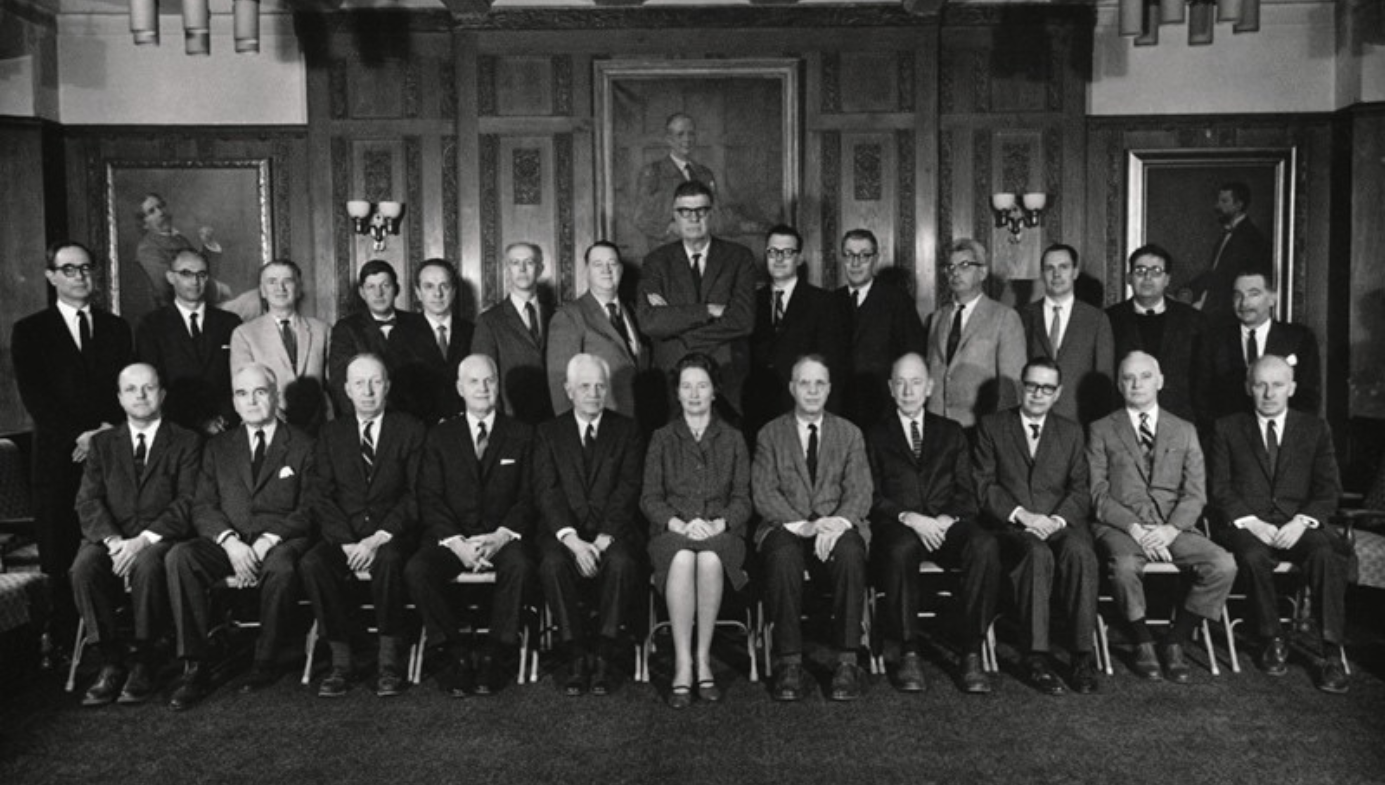Top Stories
The Self-Defeat of Academia
We have forgotten that the privileges granted to us by society, in tenure and our intellectual freedoms and academic lifestyle, come in exchange for the value we are expectedly to produce.

These last few years have been tough for higher education. Enrollment is down year after year, state funding increases have stalled even as costs skyrocket, and most people don’t have much confidence overall in American colleges and universities.
The standard explanation within academia for these trends is that the relentless drumbeat of criticism of universities from right-wing media have combined with increasing anti-intellectualism in the US to erode public perceptions of the value of higher education. Attacks from conservative media have increased, focused in particular on the well-established liberal bias in higher ed, so the partisan divide in perceptions of universities is not surprising.
But right-wing attacks on the academy and its denizens are only part of the story. A closer look at the data shows that a sizeable number of liberals are dissatisfied with higher education. Besides, focusing only on partisan media places the responsibility for recent downward trends in enrolment, funding, and public opinion outside of academia. We – professors and administrators in higher education – need to accept our role in these trends. Only by confronting how we contribute to our deteriorating public image can we reverse it.
If the right-wing media attacks on universities amount to a public relations battle, then we are clearly on the losing side. We’re barely even putting up a fight. The reluctance to make the case for our value to society goes back to a very different time, when we could take public support for granted. But things have changed. There’s a lot more ambivalence now about whether higher education improves the lives of graduates and is beneficial to society as a whole.
So we need to play catch up. We academics need to do a much better job of actually contributing to society and telling people about our contributions. To be sure, not all of the trends in public support are within our control. Sweeping changes in the structure of the economy, the nature of political discourse, and the way people access and use information also have eroded the once-widespread belief that the American university system is an indispensable pillar of society. But we would be foolish to continue stubbornly laying the blame entirely at the feet of others.
We need to take our obligation to society more seriously. We need to make social impact the starting point of our work rather than something we say will happen later, be done by someone else, or magically happen on its own. More than that, we need to fundamentally shift how we think about ourselves in relation to the rest of the world. We have a tendency toward “academic exceptionalism,” as though our jobs were not work and our work need not address reality. We have forgotten that the privileges granted to us by society, in tenure and our intellectual freedoms and academic lifestyle, come in exchange for the value we are expectedly to produce. In part, the declines in public support and confidence are what happens when we don’t hold up our end of the bargain.
There are countless ways to update our approach to achieving and communicating social impact. I’ve identified three that are particularly urgent and ready for widespread implementation.

Research
We can start by improving both the quality and the content of our research. Some of the quality improvements are underway. For example, there is an exciting movement within the sciences to use more open and reproducible methods that facilitate transparency and data sharing. Other improvements that have yet to be made but are on the horizon are larger samples and ones that better represent the population, more precise statistical tools, and research approaches that will be easier to scale and adapt outside of academia.
In contrast, the content of the science has yet to face a parallel revolution. The liberal bias in social science research has already received quite a bit of attention. But far less ink has been spilled over the much larger problem of practicality. Academic research is famously, well, academic. The problem is beyond parody in some areas. In my field of social psychology, for example, we spent an unseemly amount time debating whether the smell of artificial fart spray alters people’s moral judgments. We are still debating whether forcing people to hold a pencil between their teeth makes them feel happy.
There are real scientific questions to be answered in cases like these, but that is part of the problem. We’re too easily drawn into prolonged battles over territory that has no strategic value. As the expression goes, academic fights are so bitter because the stakes are so low.
Part of the problem here is the incentive structure. We are rewarded for staking out and exploiting new intellectual territory no matter how obscure, and nothing prevents whole fields from splintering into a thousand warring tribes clashing over those faraway lands in the pages of speciality journals. Many successful tenure cases have been made because of these skirmishes.
We can address the niche-interest problem by making our research address topics of interest to people outside academia. We need to speak to the world, not just each other. That means choosing research projects that are informed by and speak to social issues and public health. As with research quality, there needs to be a shift in norms around research content. Some fields have already gotten there. The rest of us need to get on board with the idea that research is for society, not academia.
The usual retort is that so-called basic science has impact later in unexpected ways. That is true, but much less often than we realize and only because some other researchers took the trouble to apply those basic discoveries to practical applications. We can reject the false dichotomy of “basic versus applied” research and simply do both.
Undergraduate Education
For all the rigors of our research, it is ironic that we are willing to take it on blind faith that what we do in the classroom is effective. Even among professors who put concrete learning goals in their course syllabi, only a rare few bother to measure whether those goals are met. Student evaluations are not related to learning, and grades are not a good index of how much students learned because they depend on so many other factors. So we’re flying blind. Because we do not know whether our students learn the knowledge and skills we tried to teach them, we simply have no way to effectively improve our teaching to address weak spots. Many of us teach by trial and error with no clear standard for success.
The problem exists at the level of the university degree, too. University mission statements talk about highfalutin ideals like generating and applying knowledge, altering lives, and changing the world. You might think, then, that universities go to great lengths to track how well their students and alumni live up to those standards. But you’d be wrong. How do universities know they are succeeding in their missions? How do we know our graduates’ successes aren’t due to the selective admission of people who are bright, motivated, and capable to begin with? We don’t.
Perhaps we’re reluctant to seriously evaluate our teaching because we fear what we will find. Most faculty at research universities might generously be described as hobbiest educators. We teach a lot, but very few of us have formal training in it. Pedagogy is not a standard part of most doctoral programs, and most universities do not require faculty to get training in or use evidence-based teaching practices.
It is time to start taking our teaching mission much more seriously. We should restructure how we educate our doctoral students in pedagogy and develop doctoral programs in field-specific teaching. Some fields have this already (for example, you can get a degree in language education), but there are almost none in the sciences. If a doctoral student wants to go into teaching, say, at a liberal arts college, then that person’s graduate training should focus on teaching more than research. We need to let go of the fantasy that learning to become a good researcher will necessarily train someone to teach that research to others.
We need to elevate the status of adjunct faculty, who do the bulk of the teaching, to have co-equal status with tenured faculty within existing programs. The work of these full-time teachers needs to be funded and supported to the same degree as that of the full-time researchers. If teaching and research are both pillars of our mission, then that priority should be represented in how we hire personnel and assign them credit. We need tenure-track teaching as well as research positions.
And we need to actually evaluate whether our efforts in the classroom and in the degree programs are achieving their intended ends. That means clearly articulating what we are trying to do, measuring progress toward those goals, and adapting our practices in areas were we fall short.

Impact and Outreach
Attitudes toward engaging with the public about research range from ambivalence to hostility. On one end, many researchers want to reach lay audiences but are scared because they haven’t done it before and have no training. On the other, some feel that outreach is premature when scientific evidence is inconclusive (i.e., always). Yet these attitudes simply reveal that we have failed to train researchers adequately in science communication. They also reveal the ways we could improve.
The first change is obvious: just like teaching, science communication needs to become a core component of doctoral training programs in the sciences. We need to train researchers not only how to communicate but also how to evaluate whether that communication is effective. And, as with teaching, there is also an academic literature on this topic that we should be integrating into our training and practice. The job of a scientist must evolve to encompass directly communicating about research to broad lay audiences.
The second change is more ambitious. We need to reorient our whole approach to science communication. The current model is for communication to be serial and unidirectional: we (scientists) discover a fact, verify it, then announce it to the world in a (usually paywalled) peer-reviewed journal. Instead, communication should be fluid and bidirectional, and more focused on the scientific process rather than outcomes. When a reporter calls to ask about a study, tell her what the field knows and what it does not, what it is doing to bridge the gap, and explain why doing so is important. Ask her what information she needs to cover the topic in question. Accept the reality that, as a member of the media, she represents the patrons of our work.
Any changes we make must embrace the idea that science communication is part of our job. Knowledge production is useless without knowledge dissemination. For too long, we’ve tipped the scales of our training and practice toward the former to the neglect of the latter. It’s time to rebalance.
Inevitable decline?
The decline in public funding for research and education has been gradual, but at this point the long-term trend is unmistakable. We are nearing a tipping point where the old model for funding public education – a blend of state support, tuition, and donations – will become unsustainable. There are no indications the trends will stop, and even if they did hold where they are now we would still be facing a radically different world. One way or another, academia will experience major structural shifts in the coming decades.
We need to change the way we’re doing business. Many of my faculty colleagues won’t want to hear this message. We are quite comfortable in our ivory tower, thank you very much. There are enough alternative factors contributing to the decline that we can fool ourselves into thinking we have no part in it. Ignoring our role amounts to fiddling away while the tower slowly collapses around us. Instead, we can start making changes now so we can shape the new academic order.






